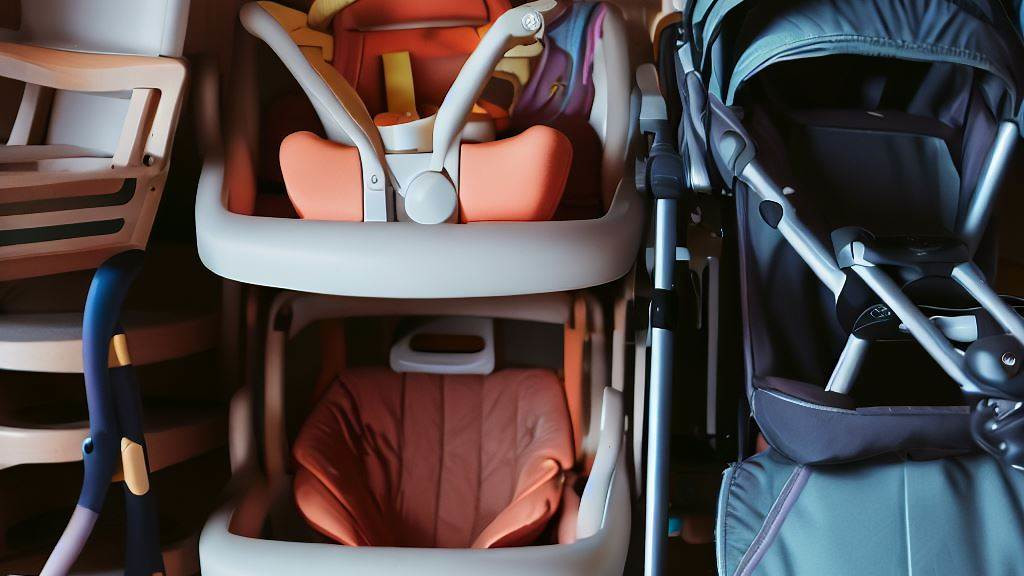Are your closets bursting with unused items, collecting dust and taking up valuable space? It’s time to unlock the hidden potential of your possessions and transform them into a lucrative source of income.
Welcome to the world of the rental side hustle, where you can turn your idle items into a steady stream of extra cash. From that seldom-used power drill to your stylish camera gear, there’s a market of eager renters just waiting to put your belongings to good use.
In this article, we’ll explore how you can tap into this thriving sharing economy, maximize your earnings, and discover the joy of turning your idle items into a profitable venture.
Get ready to embark on a journey that will not only declutter your life but also fatten up your wallet. It’s time to uncover the true potential of your possessions and embrace the rental side hustle.
How much money can you make?
Here are a few examples
Sure! Here are a few examples of items and their potential rental costs to give you an idea:
- Camera and Lens: $30-50 per day, $150-250 per week.
- Power Tools: $20-40 per day, $100-200 per week.
- Camping Tent: $15-30 per day, $70-150 per week.
- Kayak: $40-60 per day, $200-350 per week.
- Party Supplies (Tables, Chairs, Canopies): $10-20 per day, $50-100 per week.
- Baby Stroller: $15-25 per day, $70-120 per week.
- Formal Attire (Evening Gown, Tuxedo): $40-80 per day, $200-400 per week.
- Guitar: $15-30 per day, $80-150 per week.
- Projector: $30-50 per day, $150-250 per week.
- RV/Campervan: $150-300 per day, $800-1500 per week.
These rental cost ranges are general estimates and can vary based on factors such as location, item condition, brand, and market demand. It’s essential to conduct thorough research specific to your area and item to determine appropriate pricing that is competitive yet profitable for your rental business
The amount of money you can make by renting out your unused items will vary depending on several factors, including the demand for the items, rental duration, rental rates, and your location. Here are some key considerations:
Demand:
The popularity and demand for specific items will significantly impact your earning potential. High-demand items like camera equipment, tools, or recreational gear may fetch higher rental rates and attract more renters.
Rental Duration:
The length of the rental period will affect your income. Short-term rentals may generate higher rates per day or week, while long-term rentals can provide a steady income stream over an extended period.
Rental Rates:
Setting competitive and fair rental rates is crucial for attracting renters. Research similar listings in your area to determine the average rental rates for comparable items. You can adjust the rates based on the condition and quality of your items.
Location:
Rental income can vary based on the location’s demand and cost of living. Urban areas with a higher population and tourist influx may offer more rental opportunities and potentially higher rates.
Availability and Utilization:
The more frequently you make your items available for rent, the higher your potential earnings. Ensuring your items are well-maintained and ready for rental will help maximize their utilization and, consequently, your income.
What type of items can I rent out?
You can rent out a wide variety of items depending on their demand and market value. Here are some popular items that people often rent out:
Tools and Equipment:
Power tools, woodworking equipment, gardening tools, pressure washers, and ladders are in high demand for DIY projects and home improvement tasks.
Electronics:
Cameras, lenses, drones, audio equipment, projectors, and gaming consoles are sought after by individuals looking to capture special moments or enjoy temporary entertainment.
Outdoor Gear:
Camping equipment, tents, backpacks, kayaks, paddleboards, bicycles, and sports equipment are popular choices for adventure enthusiasts and weekend warriors.
Party Supplies:
Event planners and individuals hosting parties often look for party supplies like tables, chairs, canopies, lighting, and decorations.
Baby Gear:
Strollers, cribs, car seats, high chairs, and baby monitors are frequently rented by parents or caregivers who need temporary solutions.
Special Occasion Items:
Formal attire, wedding decor, photo booths, and audiovisual equipment are commonly rented for weddings, proms, and other celebratory events.
Home Appliances:
Kitchen appliances like mixers, blenders, and juicers, as well as home electronics such as projectors and speakers, can be rented for short-term use.
Recreational Vehicles:
RVs, campervans, and trailers are popular choices for those who want to experience the freedom of road trips without the commitment of ownership.
Musical Instruments:
Guitars, keyboards, drum sets, and other musical instruments can be rented by aspiring musicians or individuals who need them for a limited time.
Specialty Items:
Unique and niche items like party costumes, professional photography equipment, 3D printers, and virtual reality headsets have a dedicated market of renters.
Remember, the rental market can vary depending on your location and target audience. It’s essential to research your local market and identify the items that are in demand to maximize your rental income potential.

Is there a list of websites where is can list my items for rental?
Here is a list of popular websites where you can list your items for rental:
Airbnb www.airbnb.com – rent your room
Turo www.turo.com – Focused on renting out vehicles.
Fat Llama www.fatllama.com – Offers a wide range of rental categories.
ShareGrid www.sharegrid.com – Specializes in camera and filmmaking equipment rentals.
PeerRenters www.peerrenters.com– General marketplace for renting various items.
RentNotBuy www.rentnotbuy.co.uk– Allows you to rent out a variety of items.
Loanables www.loanables.com – Platform for renting out various items.
Zilok www.zilok.com – Offers a marketplace for renting a wide range of products.
RVshare www.rvshare.com – Specifically for renting out recreational vehicles (RVs).
RentMyItems www.rentmyitems.com – Allows you to list various items for rent.
Is it worth buying equipment second hand to then rent out?
Buying equipment second hand to rent out can be a viable option, as it allows you to acquire assets at a lower cost and potentially generate a return on your investment through rental income. However, there are a few factors to consider:
Initial Investment:
Purchasing second-hand equipment typically involves a lower upfront cost compared to buying new. This can help you get started with your rental business without significant capital expenditure.
Condition and Maintenance:
Ensure that the used equipment you purchase is in good working condition and well-maintained. Regular maintenance and repairs may be necessary to keep the items in optimal shape for rentals.
Rental Demand and Pricing:
Research the rental demand and pricing for the specific equipment you plan to purchase. Analyze the potential rental rates, competition, and expected utilization to determine if the investment will yield satisfactory returns.
Market Trends and Lifespan:
Consider the lifespan and potential obsolescence of the equipment. Some items may have shorter lifecycles due to technological advancements, while others may have long-lasting demand. Stay informed about market trends and customer preferences to make informed purchasing decisions.
Insurance and Liability:
Understand the insurance and liability considerations associated with renting out equipment. It’s important to have proper insurance coverage to protect your assets and mitigate potential risks.
Market Saturation:
Assess the level of market saturation in your area for the specific equipment you plan to rent out. If the market is already saturated with similar rental offerings, it may be more challenging to generate substantial profits.
Before proceeding, conduct thorough research, create a solid business plan, and carefully evaluate the potential profitability of buying second-hand equipment for rental purposes. It’s also advisable to seek advice from experts or professionals in the rental industry to gain insights and guidance specific to your business goals.
Your own private rentals?
Want to do your own private rentals and not have to pay a fee to a third party?
You will need to have some sort of agreement in place to protect yourself and the person renting your equipment
Here is one example.
[Your Company Name]
[Address]
[City, State, Zip Code][Phone Number]
[Email Address]
[Website, if applicable]RENTAL AGREEMENT
This Rental Agreement (the “Agreement”) is entered into between [Your Company Name] (the “Lessor”) and [Customer Name] (the “Lessee”), collectively referred to as the “Parties,” for the rental of equipment described below.
EQUIPMENT DETAILS:
Equipment: [Provide detailed description of the equipment being rented]
Serial Number: [Enter the serial number, if applicable]
Rental Period: [Specify the start and end dates of the rental period]Rental Rate: [Indicate the agreed-upon rental rate]
Security Deposit: [Specify the amount of the security deposit, if applicable]
Additional Terms: [Include any additional terms or conditions specific to the rental]
TERMS AND CONDITIONS:
- Rental Period: The rental period will commence on the agreed start date and terminate on the agreed end date as specified above. Any extension of the rental period must be agreed upon in writing by both Parties.
- Rental Rate and Payment: The Lessee agrees to pay the agreed rental rate for the equipment rental. Payment is due in full before or on the commencement of the rental period. Late payments may incur additional charges or penalties as outlined in this Agreement.
- Security Deposit: If a security deposit is required, the Lessee shall pay the specified amount prior to the rental period. The deposit will be refunded within [number of days] after the equipment is returned in the same condition as when rented, less any deductions for damages, loss, or outstanding fees.
- Equipment Use and Care: The Lessee agrees to use the equipment in a careful and responsible manner, following all safety guidelines and manufacturer instructions. The Lessee shall bear any costs associated with damage, loss, or theft of the equipment during the rental period.
- Liability and Insurance: The Lessee assumes all liability for personal injury, property damage, or any other losses that may occur during the rental period. The Lessee is responsible for obtaining appropriate insurance coverage to protect against such risks.
- Indemnification: The Lessee agrees to indemnify and hold harmless the Lessor from any claims, damages, or liabilities arising out of the Lessee’s use of the rented equipment.
- Equipment Return: The Lessee shall return the equipment to the Lessor’s premises in the same condition as when rented, except for normal wear and tear. Any delays in returning the equipment beyond the agreed-upon end date may result in additional rental charges.
- Termination: Either party may terminate this Agreement with written notice if the other party fails to comply with the terms and conditions herein. Upon termination, the Lessee shall promptly return the equipment to the Lessor.
- Governing Law: This Agreement shall be governed by and construed in accordance with the laws of [State/Country], without regard to its conflict of laws principles.
- Entire Agreement: This Agreement constitutes the entire agreement between the Parties and supersedes any prior understandings or agreements, whether oral or written, relating to the subject matter herein.
By signing below, the Parties acknowledge that they have read and understood the terms and conditions of this Rental Agreement and agree to be bound by them.
Lessor: [Your Company Name]
[Authorized Signature] [Printed Name and Title]
Lessee: [Customer Name]
[Authorized Signature] [Printed Name and Title]
Date: ________________________
Note: This is just a sample rental agreement and should be reviewed and customized to meet your specific requirements. It is advisable to consult with a legal professional to ensure compliance with local laws and regulations.
5 tips
- Identify Marketable Possessions:
Take inventory of your possessions and identify items that are in demand or have high rental potential. Look for items that are frequently needed but not easily accessible, such as camping gear, power tools, party equipment, or specialty kitchen appliances. By focusing on items with high demand, you can maximize your rental earnings. - Set Competitive Rental Rates:
Research the rental market in your area to determine the average rates for similar items. Price your rentals competitively to attract potential customers while ensuring that your earnings are reasonable. Consider offering discounts for longer rental periods or bundling related items together to incentivize customers and increase your chances of securing rentals. - Optimize Listing Platforms:
Utilize online platforms and marketplaces dedicated to rentals, such as peer-to-peer rental platforms or local classified websites, to reach a wider audience. Create compelling and detailed listings for your items, including high-quality photos, accurate descriptions, and any additional perks or features that set your rentals apart from others. Regularly update your listings and respond promptly to inquiries to establish a reliable reputation. - Establish Clear Rental Policies:
Define clear rental policies and guidelines to protect both you and your customers. Include information such as rental duration, security deposit requirements, cancellation policies, and any special conditions for renting specific items. Clear policies help manage customer expectations, minimize conflicts, and ensure a smooth rental experience for all parties involved. - Prioritize Safety and Maintenance:
Before renting out any item, thoroughly inspect and clean it to ensure it’s in excellent working condition. Regularly maintain and service your possessions to keep them in top shape. Provide proper instructions and safety guidelines to renters, emphasizing how to use the item safely and what to do in case of any issues. By prioritizing safety and maintenance, you can build trust with your customers and enhance the overall rental experience.

Added extras
In addition to the essential tips mentioned earlier, providing added extras can enhance the rental experience for your customers and set your offerings apart from competitors. Here are some ideas for added extras you could provide:
Instructional Guides or Videos:
Create comprehensive instructional guides or short videos that explain how to use the rented item properly. This can be particularly helpful for complex or specialized equipment. Clear instructions can instill confidence in your renters and minimize the chances of misuse or damage.
Delivery and Pickup Service
Offer a convenient delivery and pickup service for your rentals, especially for larger or heavier items. This can save your customers time and effort, making the rental process more convenient and attractive.
Accessories and Add-ons
Consider including relevant accessories or add-ons with your rentals. For example, if you’re renting out a camera, include a tripod or additional lenses. Providing these extras as part of the rental package can increase the value proposition for customers and make your offerings more appealing.
Maintenance and Cleaning Services
Assure your customers that the rented items will be professionally cleaned and maintained between rentals. This can give them peace of mind and eliminate any concerns about cleanliness or functionality.
Personalized Recommendations
Offer personalized recommendations to your customers based on their specific needs. For example, if someone is renting camping gear, you could suggest nearby campsites, hiking trails, or outdoor activities they might enjoy. Providing local knowledge and personalized advice can create a positive impression and build customer loyalty.
24/7 Customer Support
Establish a responsive customer support system that is available 24/7. Provide multiple channels of communication, such as phone, email, or live chat, so that customers can reach out to you easily with any questions, concerns, or issues they may have during their rental period.
Flexible Rental Terms
Consider offering flexible rental terms to accommodate different customer needs. This could include options for hourly, daily, or weekly rentals, or the ability to extend or shorten the rental period based on the customer’s requirements.
By providing these added extras, you can differentiate yourself in the market, attract more customers, and create a memorable and satisfying rental experience, leading to positive reviews and repeat business.
Conclusion
The rental side hustle offers a lucrative opportunity to unlock the hidden potential of your possessions and transform idle items into a steady stream of income. By following the essential tips outlined in this article, you can navigate the rental market with confidence and maximize your earning potential.
First and foremost, identifying marketable possessions is key. By focusing on items in demand or those that are not easily accessible, you can attract a steady flow of customers. Additionally, setting competitive rental rates and optimizing your listings on dedicated platforms will help you reach a wider audience and stand out from the competition.
Establishing clear rental policies and prioritizing safety and maintenance are essential for a smooth and trustworthy rental experience. Clear policies ensure transparency and manage customer expectations, while safety precautions and regular maintenance build trust and customer satisfaction.
Moreover, going the extra mile with added extras can significantly enhance the rental experience for your customers. Whether it’s providing instructional guides, offering delivery and pickup services, including accessories, or offering personalized recommendations, these additional touches create added value and set you apart from other rental providers.
Ultimately, success in the rental side hustle requires dedication, excellent customer service, and continuous effort. By implementing these strategies, you can turn your idle possessions into a reliable income stream while providing a valuable service to those in need. So, unlock the hidden potential of your possessions today and embark on your journey to rental success.

